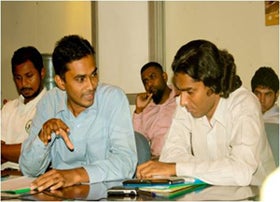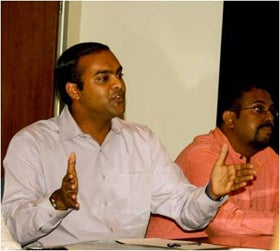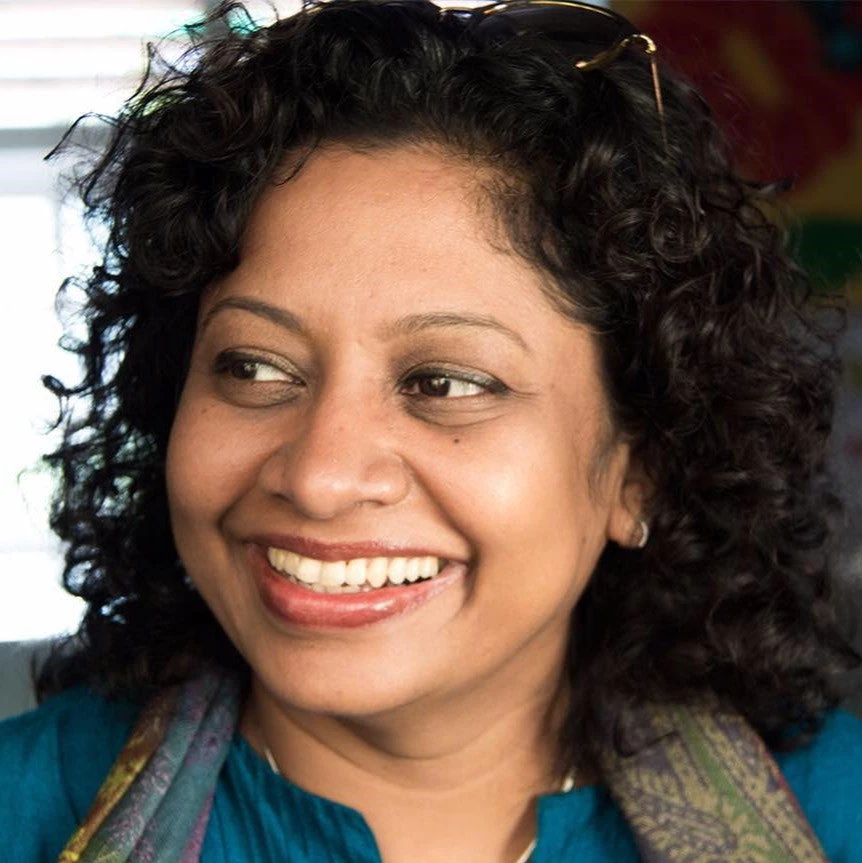 The three decade long war in Sri Lanka was instigated due to unmet youth aspirations. Today, Sri Lanka is well known as a post conflict country. No Sri Lankan in their right minds would like to witness the same again. As a Sri Lankan who has lived and worked most of my life in Sri Lanka, I can’t help but feel that my future could have been different if there was no conflict during the best part of my youth. I know many others feel the same.
The three decade long war in Sri Lanka was instigated due to unmet youth aspirations. Today, Sri Lanka is well known as a post conflict country. No Sri Lankan in their right minds would like to witness the same again. As a Sri Lankan who has lived and worked most of my life in Sri Lanka, I can’t help but feel that my future could have been different if there was no conflict during the best part of my youth. I know many others feel the same.
Right now, most of Sri Lanka’s population is of working age. This demographic bonus was opened in the 1990s and will close in a few years time. According to Prof. Indralal De Silva from the University of Colombo, this demographic dividend will close in 2017, given the current trends.
It's time all decision makers and development practitioners think YOUNG. Youth need to be mainstreamed into development work and given a seat at the table to actively participate in policy making processes.
On September 1, 2011, World Bank Colombo office hosted a Youth Open House to provide an opportunity for youth to learn about careers in development and also to invite youth to be a part of the upcoming Country Partnership Strategy consultations. “We no longer want to be beneficiaries of development” said a youth explaining that youth need to be considered a development partner and given a seat at policy dialogues that would shape their future.
A Video Conference titled “Sri Lanka is still YOUNG” was a reminder to all that Sri Lanka’s demographic time bomb is ticking and the current bonus period is about to expire. It was indeed refreshing to hear that Sri Lankan youth groups are already on the act working on many fronts challenging issues of development priority to Sri Lanka. Most of these youth, who have lived through the conflict period, put reconciliation for development at the top of the list.
The Chairman, Lalith Piyum Perera from National Youth Services Council and his team presented the progressive work carried out by NYSC to develop leadership and entrepreneurial skills while giving youth a common Sri Lankan identity and respecting diversity of Sri Lankan cultures and people.
 The President of Sri Lanka Unites, Prashan de Visser presented their work aimed at breaking the culture of divisiveness and providing a space for youth leaders to voice their concerns for change through real heartfelt reconciliation. “We have a dream and that is to see Sri Lanka in the years to come will be seen as a model for authentic post war reconciliation, a true meritocracy and the ideal for post conflict transformation. We work to this end - the creation of inclusive Sri Lankan identity” said Prashan describing SLU’s recent work bringing over 600 youth leaders to interact, exchange views, voice concerns and start friendships which could be lifelong ones.
The President of Sri Lanka Unites, Prashan de Visser presented their work aimed at breaking the culture of divisiveness and providing a space for youth leaders to voice their concerns for change through real heartfelt reconciliation. “We have a dream and that is to see Sri Lanka in the years to come will be seen as a model for authentic post war reconciliation, a true meritocracy and the ideal for post conflict transformation. We work to this end - the creation of inclusive Sri Lankan identity” said Prashan describing SLU’s recent work bringing over 600 youth leaders to interact, exchange views, voice concerns and start friendships which could be lifelong ones.
"The youth of Sri Lanka - from every village, city and district - must be inspired, equipped and empowered to take on the barriers and challenges that stand in our way. I firmly believe that the key to transforming our nation lies with the youth of this nation. With the right investment, molding a broader worldview, and combined with selfless sacrifice we can achieve what currently to many seems an unlikely goal – a reconciled, prosperous and great nation.”
-Prashan de Visser, Sri Lanka Unites President.
Shalini Mariyathas presented on behalf of the Young Planners Forum of Sri Lanka. A presentation titled “Universe Cities 2030 and Young Planners” explained the work of this young group to raise awareness on the need for well planned cities which are economically and environmentally sustainable or Eco2 Cities.
Sarvodaya, Sri Lanka’s 52 year old national charity was represented by Isura Silva, Manager of Sarvodaya Fusion, a leading ‘Information Communication and Mobile Technology for Development’ social enterprise in Sri Lanka. Isura explained how this initiative is using new technology to educate rural children and youth by linking them to resources in leading areas of Sri Lanka and the world.
Sex, most often a taboo topic in Sri Lanka was taken up in a presentation by Nooranie Muthaliph from Family Planning Association of Sri Lanka. Youth for a Healthy Sri Lanka was the title given and Nooranie explained issues and concerns around Sexual Reproductive Health of youth in Sri Lanka. A need for a national young person’s policy on health in addition to a National Youth Policy was brought up by Nooranie.
The common feature of the 5 youth organizations represented at this event was their island wide networks and outreach initiatives. Andy Schubert from Young Researchers Collective summing up the discussion emphasized the need to mainstream youth in development initiatives, the same way issues such as gender and environment are mainstreamed.
These were just a few of a number of youth organizations working towards reconciliation and development in Sri Lanka. Thanking youth for their interest and participation, Diarietou Gaye, World Bank Country Director for Sri Lanka and the Maldives assured youth representatives a seat at the public consultations process in preparation for the upcoming World Bank Country Partnership Strategy for Sri Lanka. The consultations will be conducted in Colombo and outside (locations to be determined).
Photos by Udara Madushanka


Join the Conversation